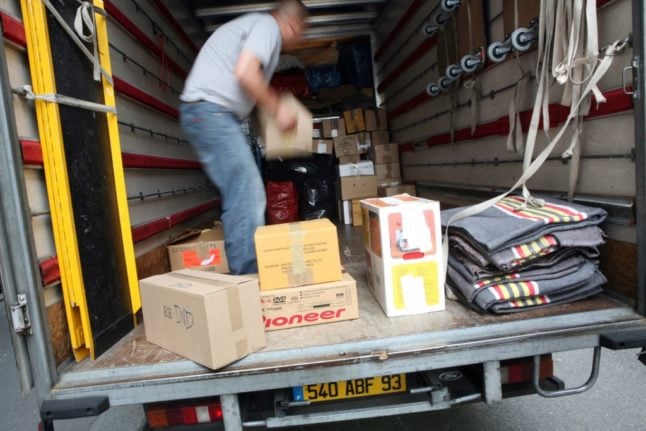Basel’s status as a destination for both national and international migration has historically not only been fuelled by a strong job market, but a high quality of life.
Tales of people floating down the crystal clear Rhine to work in the morning, or popping over the border to visit a German beer garden or enjoy some French cuisine have been a hallmark of an image Basel has worked hard to craft.
However new statistics illustrate the city is experiencing an exodus in recent years – a phenomenon accelerated by the pandemic.
According to figures from Switzerland’s UBS bank and reproduced in Swiss media, Basel is less and less attractive for locals due to a variety of factors.
The UBS Real Estate Local Fact Sheet looks at trends in people arriving in and leaving particular areas – and provides reasons for why this is the case.
The study cited three major reason why the Swiss are leaving Basel: expensive apartments, too few new construction projects and the appeal of other communities on Basel’s doorstep.
The ease and prevalence of working from home, as well as a desire for more space which was accelerated by the Covid pandemic, has seen urban life lose some of its lustre – particularly for young families.
“In view of the price differences, tenants with a small budget are increasingly deciding to look for an apartment outside the city, where you can get better quality for the same money,” Claudio Saputelli, head of property at UBS told the Basler Zeitung newspaper.
Only minutes away in the neighbouring cantons of Basel Country, Solothurn and Aargau rents and house prices are much cheaper.
The same goes just across the French and German borders, as The Local previously outlined in our report on commuting to Basel.
MAPS: The best commuter towns if you work in Basel
So will Basel soon be empty?
On the whole however, claims the city is being “abandoned” are mislaid.
While more and more Swiss-born may be leaving the city, they are being ably replaced by internationals.
The International pull of the city has seen the population remain stable over recent years, with new arrivals continuing to put upward pressure on rents and house prices in the city.
Saputelli notes however that even international arrivals are soon following their Swiss-born counterparts out of Basel, largely for the same reasons.
Saputelli said Basel “plays the role of a flow heater”, whereby people arrive but move on elsewhere before getting settled.
Why Basel?
As the figures show, the exodus is not limited to Basel but is part of broader trends across the entire country, which were of course exacerbated by the Covid pandemic.
A similar phenomenon, though on a lesser scale, has been observed in Bern and Zurich, while suburban and rural areas of Graubünden, Vaud and St. Gallen recorded a “very strong increase in newcomers”, the study found.
If you are one of the people who moved, or are planning to move, away from city into the countryside, please take part in our reader survey.



 Please whitelist us to continue reading.
Please whitelist us to continue reading.
Member comments